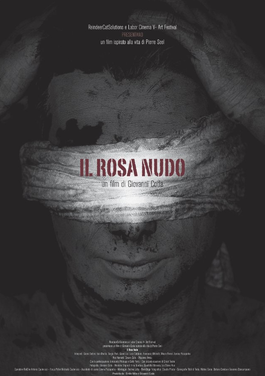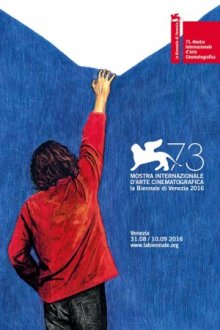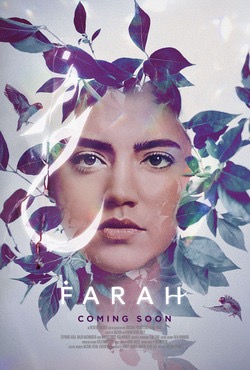Related Research Articles

The culture of Lebanon and the Lebanese people emerged from various civilizations over thousands of years. It was home to the Phoenicians and was subsequently conquered and occupied by the Assyrians, the Greeks, the Romans, the Persians, the Arabs, the Crusaders, the Ottoman Turks and the French. This variety is reflected in Lebanon's diverse population, composed of different religious groups, and features in the country's festivals, literature, artifacts, cuisine and architecture of Lebanon. Tourism in Lebanon is popular with periods of interruption during conflict.

Nadine Labaki is a Lebanese and Canadian actress, director, and activist. Labaki first came into the spotlight as an actress in the early 2000s. Her filmmaking career began in 2007 after the release of her debut film, Caramel, which premiered at the Cannes Film Festival. She is known for demonstrating everyday aspects of Lebanese life and covering a range of political issues such as war, poverty, and feminism. She is the first female Arab director to be nominated for an Oscar in the category for Best Foreign Language Film for third directorial effort, Capernaum (2018).
Middle Eastern cinema collectively refers to the film industries of West Asia and part of North Africa. By definition, it encompasses the film industries of Egypt, Iran, Bahrain, Iraq, Israel, Jordan, Kuwait, Lebanon, Palestine, Oman, Qatar, Saudi Arabia, Syria, United Arab Emirates, and Yemen. As such, the film industries of these countries are also part of the cinema of Asia, or in the case of Egypt, Africa.
Renée Scheltema is a Dutch documentary filmmaker and photographer, living in Cape Town, South Africa. She has been making documentaries for 35 years.

Philippe Aractingi is a film director and producer. He was born in Beirut, Aractingi is Franco-Lebanese.

The cinema of Lebanon, according to film critic and historian Roy Armes, is the only other cinema in the Arabic-speaking region, beside Egypt's, that could amount to a national cinema. Cinema in Lebanon has been in existence since the 1920s, and the country has produced more than 500 films.

Danielle Arbid is a French filmmaker of Lebanese origin who has been directing films since 1997.
Omar Naim is a Lebanese film director and screenwriter best known for writing and directing the 2004 film The Final Cut.

Teta, Alf Marra is a documentary film about a feisty Beiruti grandmother.

Il Rosa Nudo (The Naked Rose) is a 2013 Italian film written and directed by Giovanni Coda. The film was shot in Quartu Sant'Elena and Siliqua, in Sardinia, Italy. The Italian premiere took place during the 2013 edition of the Torino GLBT Film Festival - Da Sodoma a Hollywood.
Rania Stephan is a Lebanese filmmaker and video artist. She is best known for her first feature film The Three Disappearances of Soad Hosni (2011).

The 73rd annual Venice International Film Festival was held from 31 August to 10 September 2016.
Eliane Raheb is a documentary filmmaker and director from Lebanon. She made her debut as a director with her 2012 film, Layali Bala Noom.

Joana Hadjithomas and Khalil Joreige are Lebanese filmmakers and artists. Their work includes feature and documentary films, video and photographic installations, sculpture, performance lectures and texts.

Farah ALHashim is a Kuwaiti-Lebanese filmmaker and journalist based in Paris. ALHashim has been making films since 2011 including 7 Hours, which won several awards at film festivals in 2013 and Breakfast in Beirut in 2015, which was honored at multiple festivals.
Bita Elahian (Alahyan) (Persian: بیتا الهیان), is an Iranian-American filmmaker and actress, who is currently living in Los Angeles, California. She has studied filmmaking at New York Film Academy (NYFA). Elahian has received various awards for her directing in drama films. She is a member of Women in Film LA and New York Women in Film & Television.
Martyr is the second feature film by Lebanese writer and director Mazen Khaled. The film was selected for screening at the 74th Venice International Film Festival in the Biennale College - Cinema section, where it was nominated for the Queer Lion award, and at the 2018 SXSW in the Global section. Martyr was produced by Diala Kachmar of Artrip Production and is distributed in North America by Breaking Glass Pictures and in the UK by Peccadillo Pictures. Martyr was described by Indiewire as "One of the most under-appreciated films of 2018". It features a large ensemble cast led by Carol Abboud, Hamza Mekdad, and Moustafa Fahs.
Mazen Khaled is a US based Lebanese director, Screenwriter, editor and producer. He is mostly known for his 2017 feature film Martyr which was screened at the 74th Venice International Film Festival and was nominated for the Queer Lion award. It was also selected for screening at the 2018 South by Southwest film festival in the Global section. Khaled also won the award for Best Artistic Achievement at the 2018 Alexandria International Film Festival for his work on Martyr. Khaled's 2010 short film My Queer Samsara (2010) premiered at the 2010 The International Film Festival Rotterdam. His other notable works as a director include A Petty Bourgeois Dream (2016), A Very Dangerous Man (2012), which was nominated for a Muhr Award at the Dubai International Film Festival, and Our Gentleman of the Wings (2010).

Farah is a 2022 Emirates-produced Lebanese psychological thriller directed by Emirati-British couple Hassiba Freiha and Kenton Oxley. The film was written by Freiha, starring Lebanese actors Stephanie Atala, Majdi Machmouchi, Nader Abd Alhay, and Youssef Boulos. The theme song “Try to remember” was performed by English musician and mental health activist Boy George, and protagonist Stephanie Atala. The film follows Lina (Atala), a pre-med student in the US, who struggles with exacerbating anxiety, low mood, and recurrent nightmares. The story explores big pharma and mental health, as well as failing family dynamics in modern Lebanon. The title of the film means “joy” in Arabic ; it refers to the street name of Xapa, a prescription antidepressant used recreationally in the film. Farah premiered at the 2022 Beirut International Women Film Festival, and was commercially released on 24 November 2022 in Lebanese cinemas. It was also released on Netflix on 8 December 2022. It garnered favorable reviews and a number of regional and international honorable mentions and awards.

Youssef Boulos is Lebanese stage and film actor. He received critical acclaim for his performance opposite Lebanese-French actress Stephanie Atala in the 2022 Lebanese film Farah. Boulos' good looks, and his resemblance to popular Turkish actor Berker Guven, made him a heartthrob among Lebanese women.
References
- ↑ "Beirut's very own Cinema Paradiso" Aljazeera. Retrieved 2016-11-30.
- ↑ "Breakfast in Beirut – a pocket full of memories" Your Middle East. Retrieved 2016-11-30.
- ↑ "Kuwaiti filmmaker grabs 2 awards at international fest" Archived 2018-07-02 at the Wayback Machine Kuwait Times. Retrieved 2016-11-30.
- ↑ "Watch MFA Filmmaking Grad’s Award-Winning Film" New York Film Academy. Retrieved 2016-11-30.
- ↑ "Breakfast in Beirut" Le Brady Cinema. Retrieved 2016-11-30.
- ↑ "Breakfast in Beirut Film Turns Into A Festival" Prelude Magazine. Retrieved 2016-11-30.
- ↑ "Artists to "Breakfast in Beirut" in 30 narrate the Middle East" Il Gazzettino. Retrieved 2016-11-30.
- ↑ "LAU inspiration to acclaimed movie “Breakfast in Beirut”" LAU News. Retrieved 2016-11-30.
- ↑ "“Breakfast in Beirut” Nominated Film of the Year" New York Film Academy. Retrieved 2016-11-30.